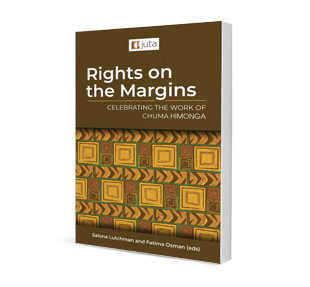What are the implications of Bwanya v The Master of the High Court for customary law?

What are the implications of Bwanya v The Master of the High Court for customary law?
Author Julia Sloth-Nielsen
ISSN: 1996-2088
Affiliations: BA LLB LLM LLD, Emeritus professor, University of the Western Cape and Professor, University of Huddersfield
Source: Acta Juridica, 2023, p. 127 – 151
https://doi.org/10.47348/ACTA/2023/a6
Abstract
This contribution examines the implications of Bwanya v The Master of the High Court for customary unions in South Africa. Bwanya ruled that the Intestate Succession Act and the Maintenance of Surviving Spouses Act were unconstitutional to the extent that they failed to include heterosexual life partners as beneficiaries falling within their remit, which violated their right to equality and to dignity. The extent to which life partners’ positions may henceforth be ameliorated by legislative reform is first examined against the backdrop of the Domestic Partnerships Bill of 2008, which did not muster support in Parliament. Thereafter, the article discusses what implications the recognition of life partnerships may hold for customary law unions. It is tentatively concluded that it may be that whilst customary unions may continue as a social practice, it may be questioned whether in future there is legal space for them to persist in their current form. Sesotho: Atekele ena e hlahloba ditlamorao tsa Bwanya v The Master of the High Court bakeng sa manyalo a setso Afrika Borwa. Bwanya o ile a diha kahlolo ka hore Intestate Succession Act le Maintenance of Surviving Spouse Act e ne e se molaong ho ya kamoo e ileng ya hloleha ho kenyeletsa balekane ba bong bo fapaneng ba phelang mmoho e le bajamafa ba welang boikarabelong ba bona, e leng se ileng sa hatakela tokelo ya bona ya tekano le seriti. Ho ya kamoo maemo a balekane ba phelang mmoho a ka matlafatswang ho ya pele ka ntjhafatso ya molao ho qala ho hlahlojwa ho itshetlehilwe ka Domestic Partnership Bill ya 2008, e ileng ya se fumane tshehetso ka Palamenteng. Kamora moo, atekele e ile ya tshohla hore ke ditlamorao dife tse ka bang teng tsa ho lemoha dilekane tsa ho phela mmoho bakeng sa manyalo a setso. Ho nkuwa qeto ka lesisitheho hore leha manyalo a setso a ka nna a tswela pele jwalo ka tlwaelo setjhabeng, ho ka nna ha ba le dipotso hore ebe nako e tlang ho na le sebaka sa ona molaong hore a nne a tswele pele ka tsela eo a ntseng a etsa nakong ya jwale.